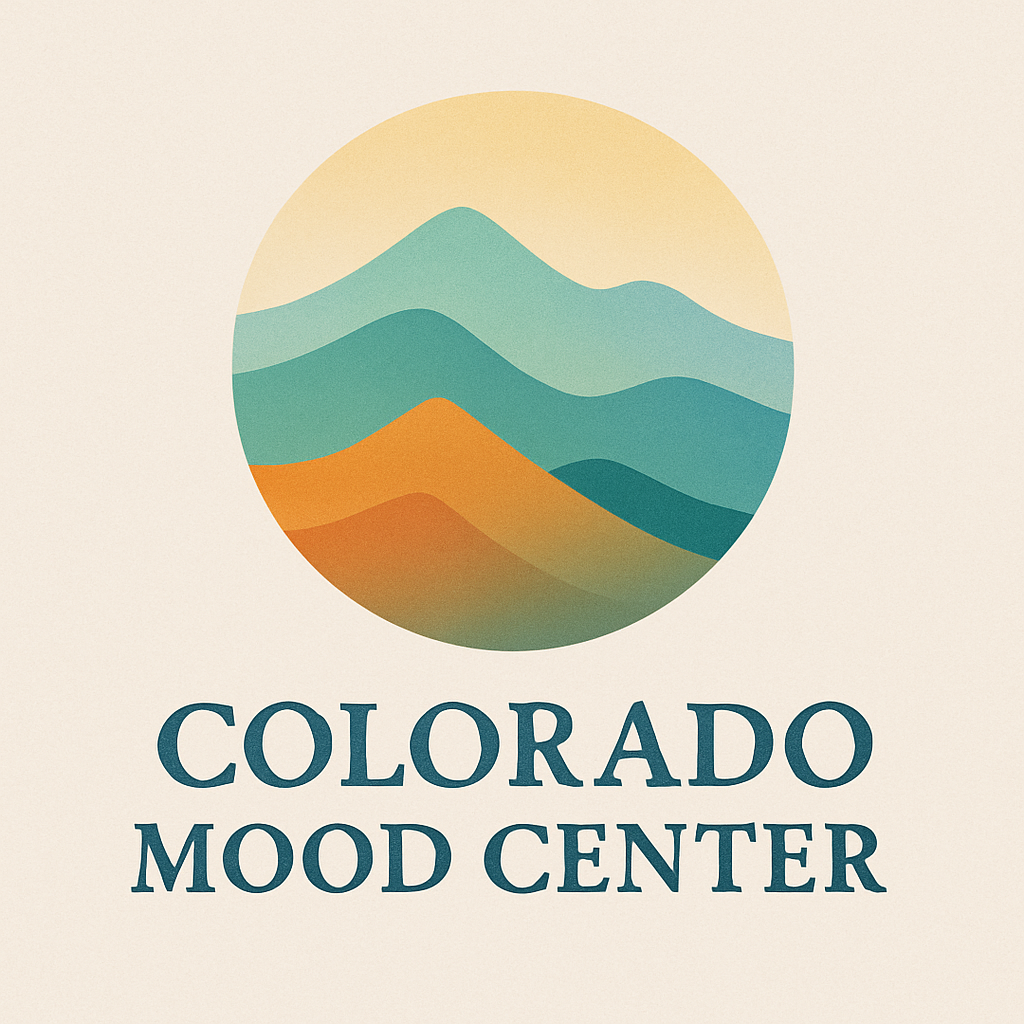Executive Dysfunction Is Not Always ADHD
Struggling to finish tasks? Feeling constantly distracted? Losing track of things or jumping between ideas? If you’ve experienced these kinds of attention or organization problems, you’ve probably heard someone suggest ADHD.
But what if that’s not the full picture?
At Colorado Mood Center, we work with many people who feel frustrated with their focus, memory, or follow-through—but who don’t actually have ADHD. Instead, they’re living with something more complex: mood disorders that disrupt the brain’s ability to stay organized, plan ahead, and follow through.
Let’s break this down.
What Is Executive Dysfunction?
“Executive function” refers to the brain’s ability to manage tasks, stay focused, regulate emotions, and make decisions. Think of it as the mental CEO. When that system breaks down—due to stress, illness, or brain chemistry—we call it executive dysfunction.
Common signs include:
Trouble starting or finishing tasks
Forgetfulness
Impulsive decisions
Trouble organizing or managing time
Feeling overwhelmed by everyday demands
These symptoms can look like ADHD. But they’re not always caused by it.
Other Conditions That Can Cause Executive Dysfunction
Executive dysfunction shows up in many psychiatric and neurological conditions, including:
Depression: Low energy, poor motivation, and slowed thinking can impair planning and memory.
Bipolar Disorder (especially with mixed features): Racing thoughts, agitation, and emotional instability can scatter focus—even during depression.
Post-Traumatic Stress Disorder (PTSD): Hypervigilance, flashbacks, and anxiety interfere with concentration.
Autism Spectrum Disorder (ASD): People on the spectrum often have difficulty with flexible thinking and planning.
Chronic stress or burnout: Long-term stress floods the brain with cortisol, impairing memory, decision-making, and emotional control.
So if you’re struggling with focus or organization, it doesn’t necessarily mean you have ADHD.
Why the Misdiagnosis Happens
In today’s fast-paced world, ADHD has become a catch-all label for anyone who feels “scattered” or “unfocused.” But when executive dysfunction shows up alongside mood swings, irritability, inner restlessness, or insomnia, we need to think more broadly.
Take “mixed depression,” for example. This is a type of depression where people feel low but also restless, agitated, or irritable—often with racing thoughts. These individuals may look like they have ADHD on the surface, but their attention problems are really symptoms of mood instability.
The wrong diagnosis can lead to the wrong treatment. For example, a person with agitated depression might be prescribed a stimulant or SSRI—only to find that it worsens their symptoms.
What to Look Out For
If you're dealing with executive dysfunction, ask yourself:
Do I also feel anxious, agitated, or emotionally overwhelmed?
Do my symptoms change with my mood or energy level?
Have I had depressive episodes that didn’t respond to standard antidepressants?
Has anyone in my family struggled with bipolar disorder or mood swings?
Do stimulants or SSRIs make me feel more restless or irritable?
If you answered yes to some of these, your symptoms might not be ADHD at all—they might be part of a mood disorder with mixed features.
Getting the Right Diagnosis
At Colorado Mood Center, we specialize in complex mood presentations—especially cases where traditional labels like “ADHD” or “major depression” don’t quite fit. We take the time to explore the full picture, including energy shifts, emotional regulation, and attention patterns.
Getting the diagnosis right matters. It can mean the difference between chasing one medication after another—or finding the treatment that finally helps things click into place.
Final Thoughts
Executive dysfunction is real. It can make life harder in school, work, and relationships. But it’s not always ADHD—and it’s not always about attention. Sometimes, it’s your mood trying to tell you something deeper.
If you’re curious about what’s underneath your focus problems, we’re here to help.
Colorado Mood Center
Personalized care for complex mood states.
[Schedule a consultation →]
